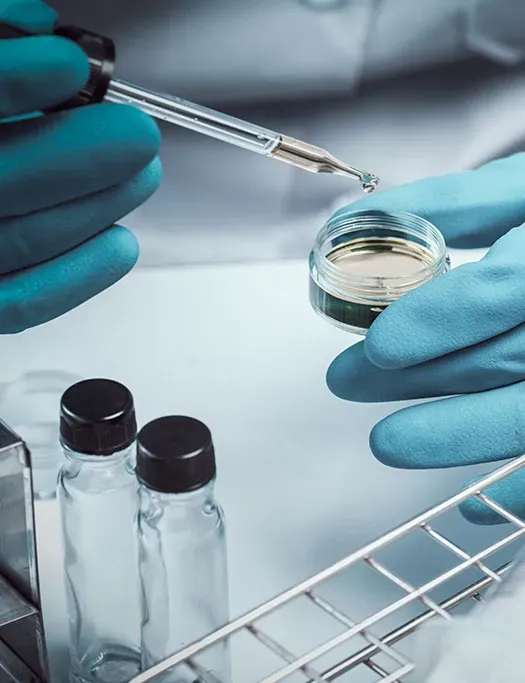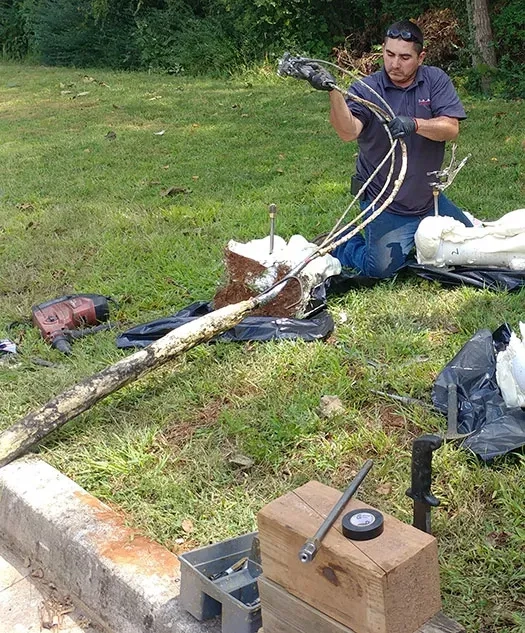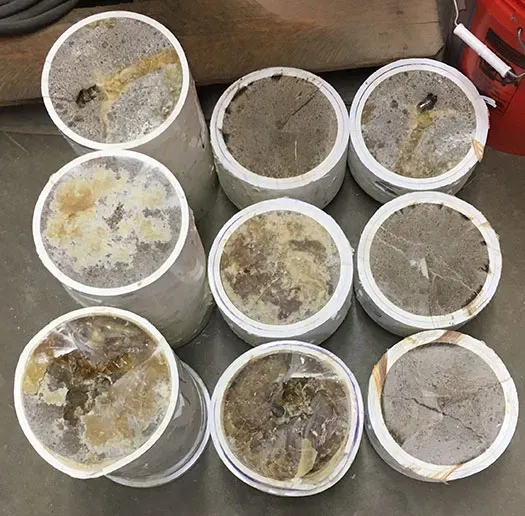Resilient Modulus Testing of Polyurethane-Injected Expansive Clay
Problem
URETEK has a long history of performing URETEK Deep Injection® (UDI), a ground improvement method where polymer grout is injected under pavements/built structures and into soils to improve the soil strength. UDI has been effective time and again in stabilizing soils of various types. However, expansive soils by nature behave differently than many other soil types. URETEK decided to perform laboratory testing to ensure that the UDI process can strengthen, stabilize, and improve the strength of expansive soils. To this end, URETEK partnered with Boudreau Engineering in Atlanta, Georgia, to inject URETEK polymer into samples of highly expansive clay.
Analysis
URETEK focused their study on analyzing the resilient modulus and quick shear of expansive soils following injection. These measures would help to indicate the load-bearing capacity of expansive soils treated with deep-injected polyurethane.
Solution
The study consisted of three control and three experimental samples. In the experimental samples, URETEK and Boudreau Engineering injected URETEK polymer into highly expansive clay to create a new geo-polymer material. All six of the samples were tested for resilient modulus and quick shear, and the results of the experimental samples were compared with the control (non-injected) samples.
Result
Averaging the results across the experimental and control groups, the injected samples showed a 59% increase in resilient modulus over the control samples. And in the quick shear test, the injected samples showed a 444% increase in max stress over the control samples at 1.5 percent strain. It should be noted that the load cell limit was reached, and therefore the injected samples may have reached a higher max stress. These results show that by injecting expansive clay soil with URETEK polymer, the resilient modulus and subsequent load bearing capacity can be increased. This indicates that the UDI process, which is very successful in other soil types, can also strengthen and stabilize expansive soils. As an added benefit, the hydro-insensitive polymer helps expel water from expansive clay and acts as a moisture barrier to reduce moisture infiltration.
URETEK Deep Injection® (UDI)
Widely referenced throughout our industry, UDI involves the injection of structural polymer into base and subgrade soils to increase the load bearing capacity. This is achieved by injecting the polymer through small holes drilled directly through the pavement structure to depths determined by site-specific analysis. Our URETEK 486 Star® material flows easily into voids and weak zones within the soil mass below. Through a controlled chemical reaction, the expanding polymer compacts surrounding soils and applies a controlled pressure on targeted areas of the affected pavement above. If needed, a multi-injection design plan is utilized to gently return the pavement to its original grade. The composite material quickly cures into a strong, dimensionally stable, and water-resistant geo-material, providing years of reliable service.
URETEK 486 Star®
URETEK 486 Star® polymer is a two-component, high-density, expanding thermoset polyurethane system. It was developed to be the ideal solution for under-sealing, void filling, lifting of settled pavement, stabilization and stiffening of weak soils, and for encapsulating and sealing buried infrastructure. URETEK 486 Star® is environmentally inert, non-toxic, and resists underground water erosion or weakening due to its industry-leading hydrophobic properties.


